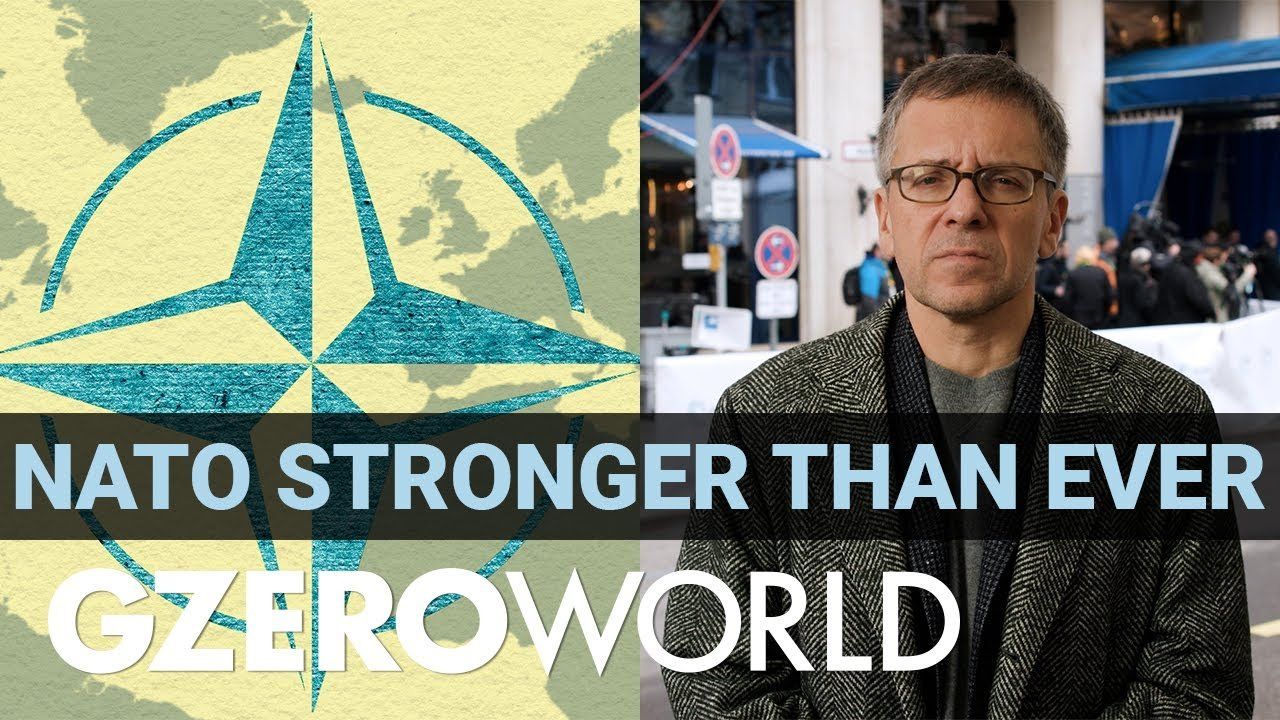GZERO World Clips
Ian Explains: how NATO got its groove back

Ian Explains: How NATO got its groove back | GZERO World

It’s been 365 days since Russia began its brutal war in Ukraine.
On the anniversary of the invasion, the world looks a lot different than it did a year ago. GZERO World traveled to the Munich Security Conference to understand just how much it's changed amid Europe's biggest land war since World War II. Despite Russian President Vladimir Putin's best efforts, one of the biggest knock-on effects is NATO's increased strength and renewed purpose in the face of Russian aggression, Ian Bremmer explains on GZERO
NATO was founded in 1949 to counter the growing Soviet threat, but after the fall of the USSR, it experienced an existential crisis about its purpose in a world where a hot war in Europe felt like a relic of the 20th century. In 2014, when Russia illegally annexed Crimea only 3 NATO members out of 28 met the alliance’s target of spending 2% of GDP on defense. Now, nine countries meet or exceed it and 19 more have plans to hit 2% by 2024.
NATO is now stockpiling more military supplies, increasing high-readiness troops, boosting air defenses, and upgrading defense plans. And it's expanding: Sweden and Finland, who for years thought it was safer to be neutral, applied for fast-track membership.
But it's not all rosy. Global inflation is going to limit the buying power of all those increased defense budgets. And NATO members have very different ideas about how far to go in maintaining its support in Ukraine. Can NATO keep up it's momentum?
For many in Iran, it’s a waiting game for how long Ayatollah Khamenei has left to live.
Iranian pro-government protesters wave national flags while participating in an anti-war protest gathering against the U.S. and Israeli military attacks in Iran, in Tehran, Iran, on February 28, 2026.
The US and Israel struck several sites in coordinated attacks across Iran this morning. The total number of casualties across Iran is also unknown, though one of the missiles hit a girls’ school in Iran, reportedly killing 53 people.
The United States and Israel have launched massive military strikes on Iran. The stated goal: dismantle Iran’s nuclear program and ballistic missile capabilities. The unstated but increasingly clear objective: regime change. In this Quick Take, Ian Bremmer breaks down what this means.